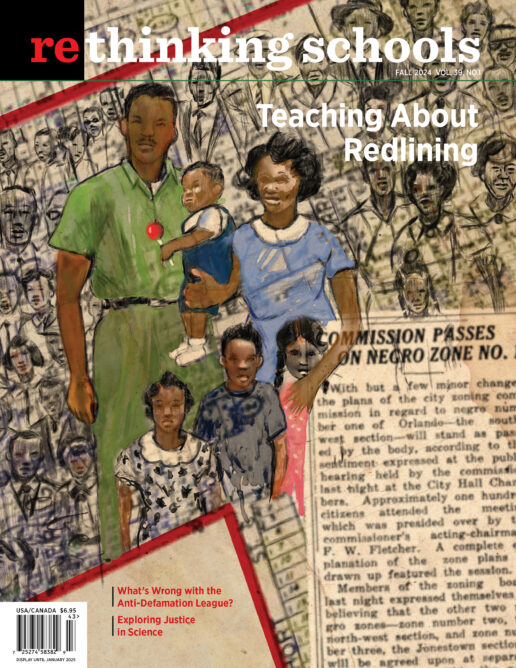Our picks for books, videos, websites, and other social justice resources 39.1
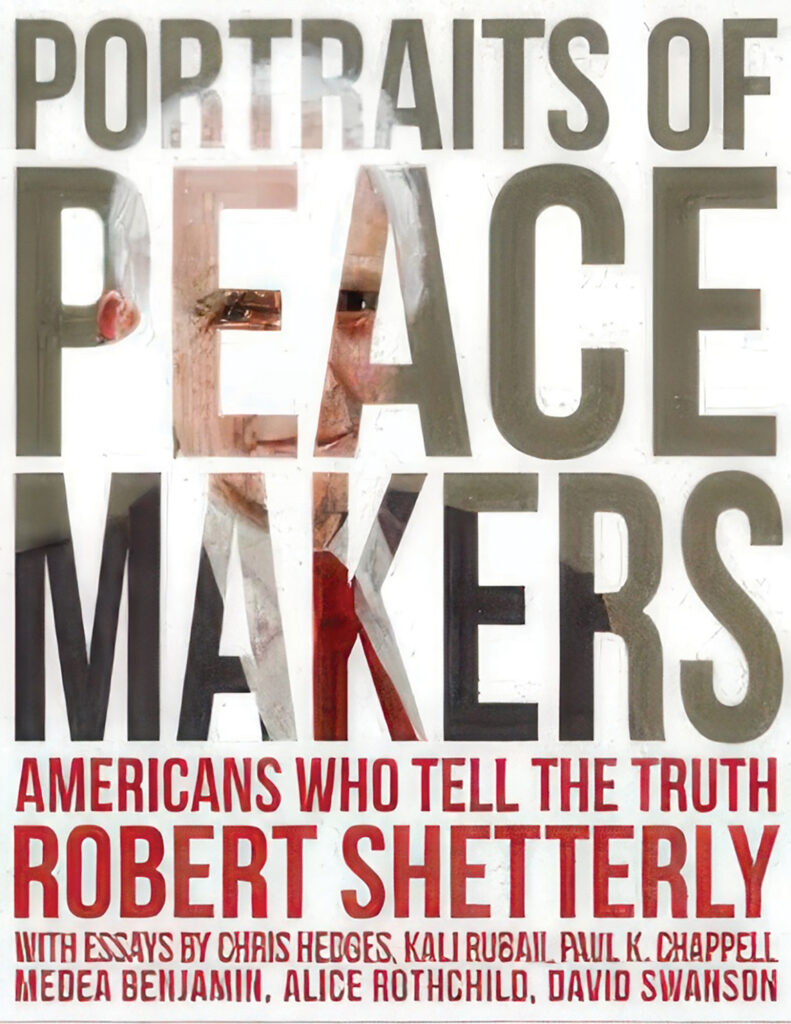
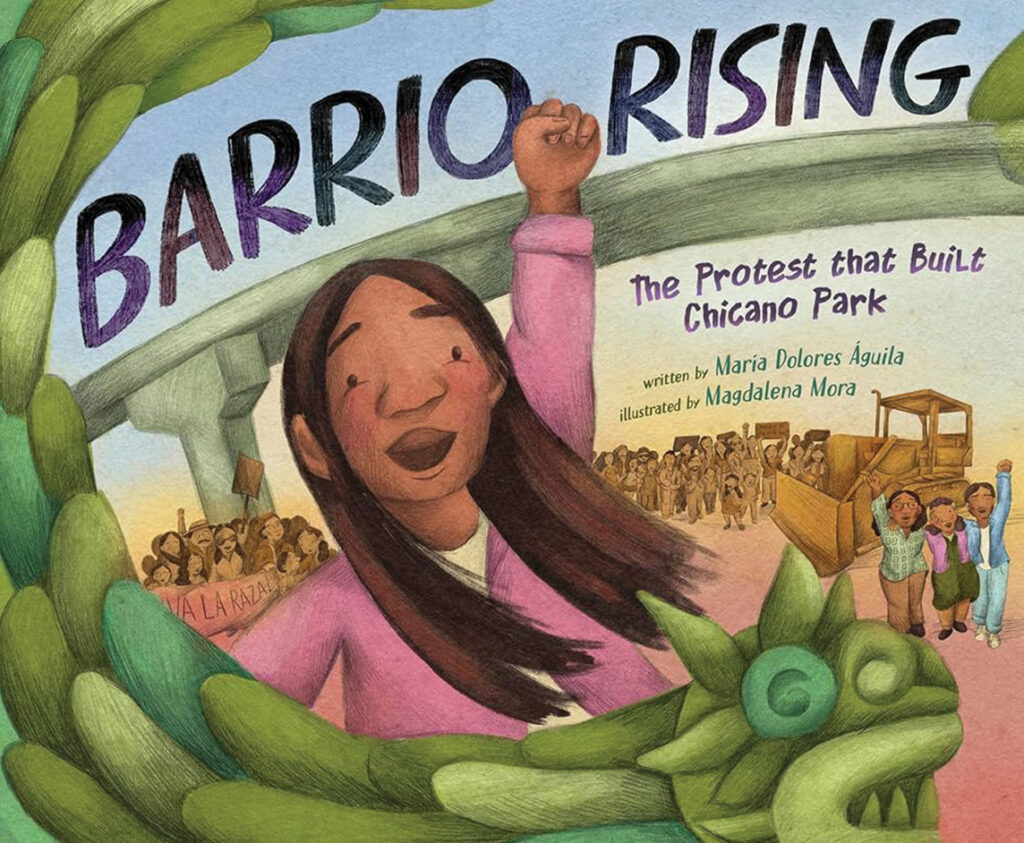
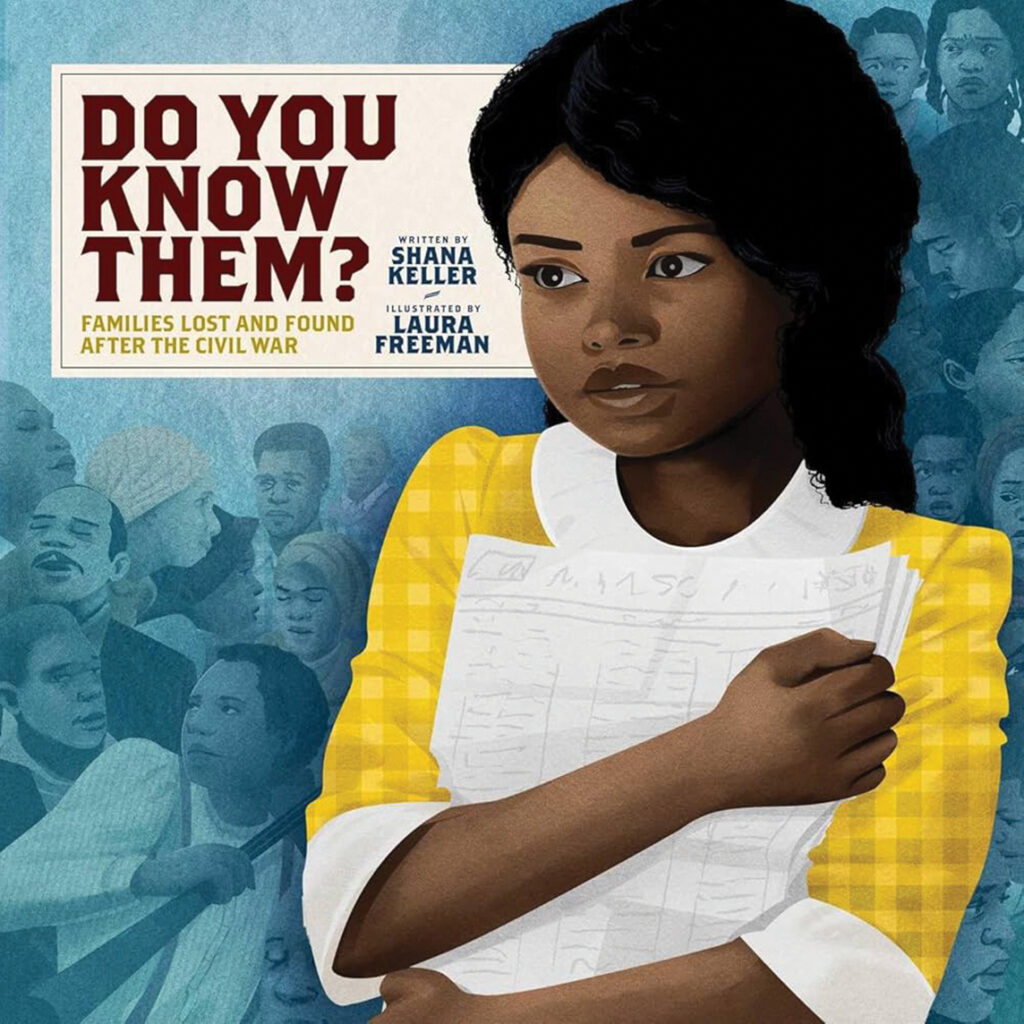
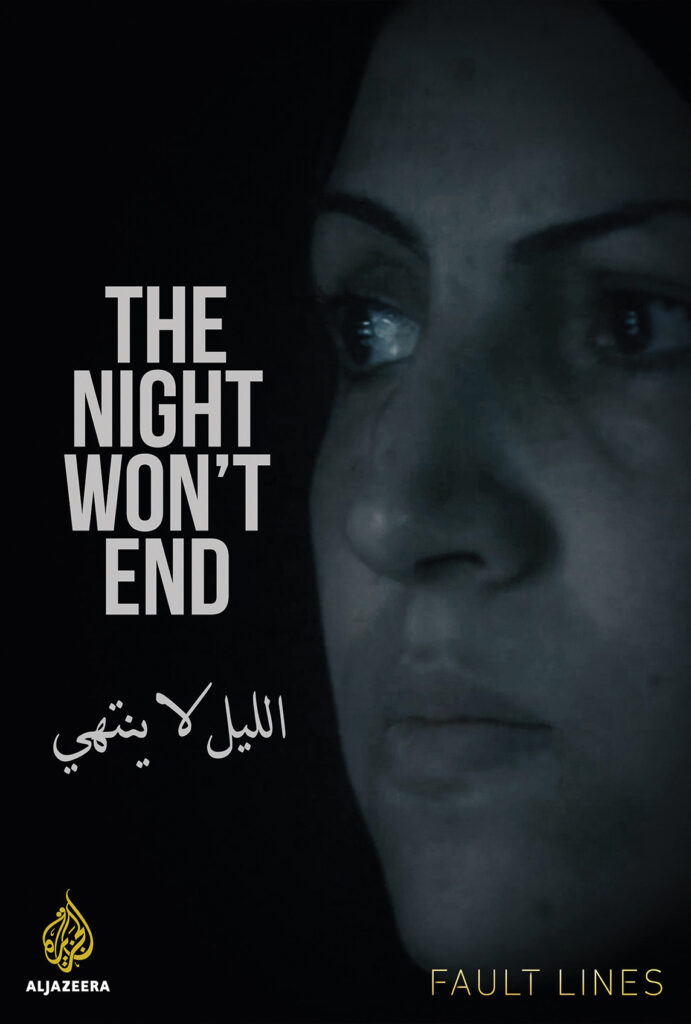
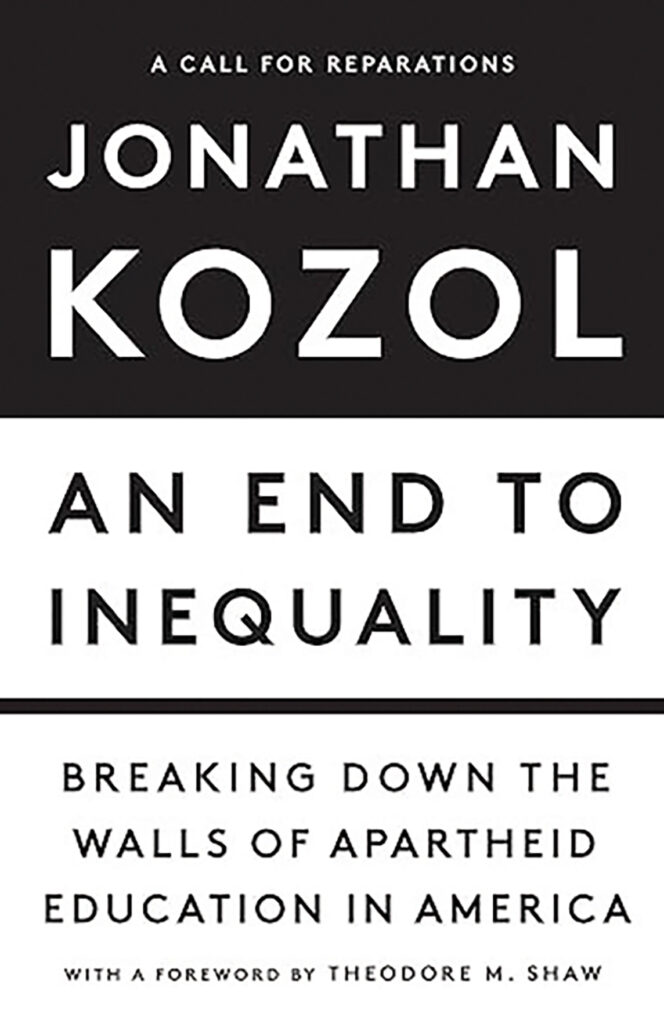

Curriculum

Portraits of Peacemakers:
Americans Who Tell the Truth
By Robert Shetterly
(New Village Press, 2024)
128 pp., 50 color images
The third volume in Robert Shetterly’s Americans Who Tell the Truth series features Shetterly’s loving, colorful portraits and short biographies of 50 peace activists, along with essays by a few of the individuals highlighted in the book: Chris Hedges, Kali Rubaii, Paul K. Chappell, Medea Benjamin, Alice Rothchild, and David Swanson. In describing what animated his choice to assemble these portraits, Shetterly writes, “Each person portrayed in this book teaches us a particular lesson of peacemaking. We need them all. They all have vision, creativity, and the courage to resist warmaking. They are heroes, not for going to war, but for having refused to participate in the violence and in the culture of violence. Let them be your guides.” Portraits of Peacemakers is a gift to educators. At a time when the virus of cynicism threatens to infect young people everywhere, this warm and wise community of truth tellers offers an alternative to despair. Robert Shetterly’s collection of courageous activists belongs in every classroom, every school library.
Picture Books

Barrio Rising: The Protest that Built Chicano Park
By María Dolores Águila
Illustrated by Magdalena Mora
(Dial Books for Young Readers, 2024)
40 pp.
The Mexican American neighborhood of Barrio Logan in San Diego faced decades of devastation in the early to mid-20th century, with military installations, polluting industries, and (as with so many low-income communities) displacement for a freeway. In the 1960s, community members advocated for a park under Coronado Bridge, only to learn that the city was building a highway patrol substation instead. Barrio Rising, narrated by a young girl named Elena, tells the true story of how community members organized a massive protest in 1970, forcing the city council to change its plans. Not only was the park built, but the pylons were painted with murals to tell the story of the uprising, and the park was added to the National Register of Historic Places in 2013. Today, it remains a beautiful monument to struggle. This is an uplifting story about the power of community organizing and the continued work for environmental justice.

Do You Know Them?: Families Lost and Found After the Civil War
By Shana Keller
Illustrated by Laura Freeman
(Atheneum Books for Young Readers, 2024)
40 pp.
This picture book introduces young readers to the history of African American family members desperately searching for their children, spouses, siblings, parents, and other loved ones during Reconstruction. After the Civil War, the federal government could have launched a massive reunification campaign with free ads, access to the mail, and transportation to reconnect as many families as possible. It did not. Instead, individuals were on their own. Many, like the young protagonist (Lettie) in the story, saved money to buy an ad in the paper and then hoped that against all odds (including forced illiteracy), the lost loved one would read it. The book includes text from real ads that Lettie reads aloud in church so her congregation has access to them. While Lettie’s story has a hopeful ending, that was the exception. Teachers can supplement the book with resources from the digital archive “Last Seen: Finding Family After Slavery” and the Zinn Education Project’s Teach Reconstruction campaign.
Film

The Night Won’t End
Directed by Kavitha Chekuru
(Al Jazeera English, 2024)
youtu.be/ECFpW5zoFXA
78 min.
The Night Won’t End is heartbreaking and a compelling tool for educators to expose the devastation caused by Israel’s war on Gaza and the role the United States has played in facilitating it. Because journalists have been barred from entering Gaza, Al Jazeera worked with a team of Palestinian journalists to follow three families as they recount their horrific experiences. With stunning cinematography and first-person interviews with relatives of victims, the documentary powerfully exposes the nightmare of Israel’s assault. This includes a comprehensive account of the murder of 6-year-old Hind Rajab, shot along with six of her relatives and two paramedics coming to her rescue. In addition to telling the gut-wrenching stories of Palestinians navigating months of war, the film carefully presents the Biden administration’s continued support for Israel’s atrocities despite clear violations of international humanitarian law.
Podcast

Echoes of a Coup
Scene on Radio (Season 6)
Produced by Michael A. Betts II and John Biewen,
with story editor Loretta Williams
(Kenan Institute for Ethics at Duke University, 2024)
“This only happens in other countries, not here” was a common refrain on Jan. 6, 2021, when Trump supporters stormed the Capitol to overturn the election. But studying the suppressed histories of the United States reveals that insurrection arrived here long before the 2020s. This season of Scene on Radio takes listeners to Wilmington, North Carolina, where an 1898 coup crushed one of the last strongholds of multiracial democracy forged in the post-Civil War South. The five-part series begins with the eras of enslavement and emancipation, as the port of Wilmington grew into a city with a thriving Black community. Powerful coalitions and joint governance led mostly by Black Republicans and white populists surged, carrying Reconstruction’s promise of racial justice and freedom into the 1890s — until it was stamped out by a white supremacist massacre and coup. In the city’s 1898 election, insurrectionists seized control of the government and the narrative, twisting historiography into whitewashed propaganda that unravels across each episode, into the present day. Echoes of a Coup blends rich perspectives from educators, scholars, and community members that offer Wilmington 1898 as a revelation — of grassroots justice movements, of political violence, of memory, of healing.
Policy

An End to Inequality: Breaking Down the Walls of Apartheid Education in America
By Jonathan Kozol
(New Press, 2024)
211 pp.
Renowned educator and author Jonathan Kozol draws on his decades of visiting schools and tells eloquent stories about the apartheid-like settings that Black and Brown students endure daily. Kozol calls for reparations, to make good on the “promissory note” Dr. Martin Luther King Jr. described on the steps of the Lincoln Memorial in 1963. Kozol calls on us to do “whatever it may take, and spending whatever it may cost, to break the back of the dual system that separates the children in our public schools.”

Thriving in a Public School
By Allen Levie
(Self-published, 2024)
226 pp.
Allen Levie, a high school teacher who taught for 19 years in Racine, Wisconsin, tells how he and his colleagues learned to teach about social justice, and helped their students organize around key school and community issues. Their organizing was linked to the worker center Voces de la Frontera and its youth group Youth Empowered in the Struggle (YES). Levie writes that “learning is a political act” and can transform students’ lives. Thriving in a Public School includes 70 interviews of former students who talk about how learning a social justice curriculum led them not only to better understand the world, but also to change it. The organizing in Racine included building for the annual “Day with Latinos” demonstrations and engaging in major get out the vote efforts. Levie describes work toward creating a student bill of rights, which, among other things, demanded bilingual education and that students be taught by teachers who had the right to collectively bargain — a right that Wisconsin teachers lost in 2011.

